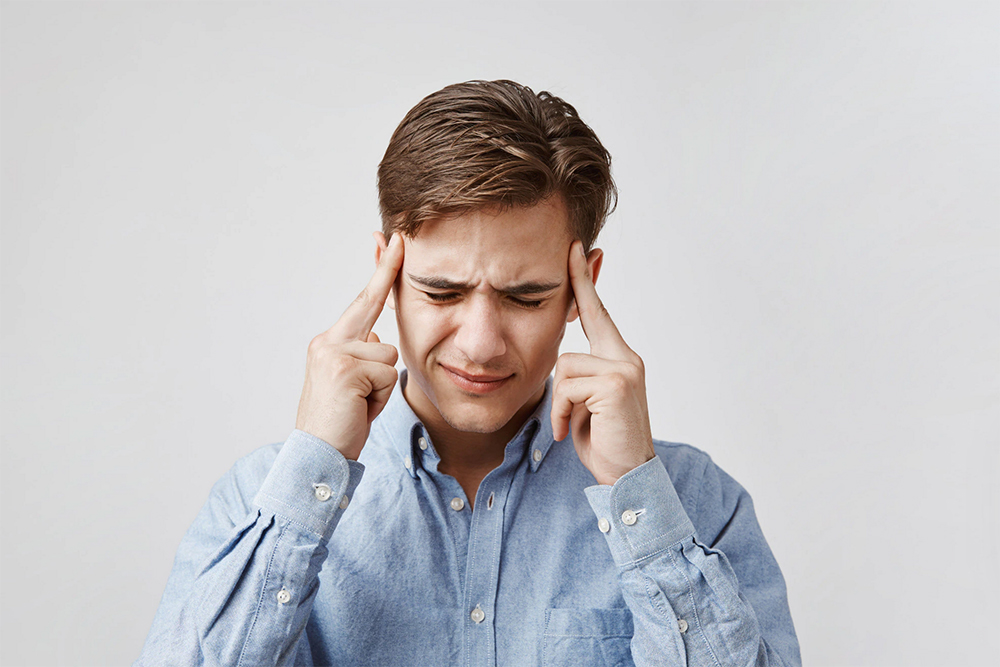Table of Contents
A migraine is not your ordinary and usual headache. There are additional aspects to it. The constant throbbing and hammering hell in your head makes going about your regular activities so painfully difficult. Any plans are put on hold or abandoned until the agony subsides, which may take days after you’ve wasted so much time suffering and in bed.
Migraines can truly disrupt your plans, both in terms of the discomfort of an attack and the inconvenience. Migraine management and prevention are your closest allies, even though there is no known cure. Consider a preventative migraine approach if your migraines become more frequent or severe to the point where they interfere with your ability to work or engage in daily activities.
For migraine sufferers, the question is: “Are there any effective ways to prevent the next painful episode?” If there isn’t a known cure, at the very least, how do you prevent the attacks from becoming any worse and lessen the frequency? As complex as migraines can be, the approach to them is as simple as making changes to your lifestyle.
How do you prevent migraines?
You’ll find a wide range of ideas online, but not all of them will be grounded in research. What has been proven to work, then?
Prescription and over-the-counter medication regimens, dietary supplements, vitamins, or minerals, lifestyle modifications, or a combination of these things can all be used to avoid migraines. Determine the right thing to do for your situation. It frequently takes trial and error and consideration of any other medical conditions you may have.
8 Migraine Prevention Tips You Should Try
1) Log your migraine episodes
You start by logging your migraine episodes and how they seem to occur. Once you have identified the patterns, you can start avoiding the triggers and develop a plan for the next steps to take.
Common migraine triggers include:
- excessive or insufficient sleep
- particular foods and drinks
- glaring light
- intense emotions and stress
- smoke from cigarettes
- changes in hormone levels
- hunger pangs
- strong odors
2) Avoiding triggers
Now that you have logged your migraine episodes, you can start the next step which is avoiding those same triggers you have identified. Though avoiding all triggers is not always within your control, it helps to focus on what is. Some examples would be:
- Eating on a regular schedule to avoid being hungry
- Develop a regular sleeping pattern to avoid excessive or insufficient sleep
- Limit or avoid cigarette smoke, caffeine, and alcohol
- Being hydrated, especially during or after exercise and on hot days
- Devise a plan to avoid or manage stress by taking breaks when working
3) Taking supplements
According to some study, some vitamins, minerals, and herbal supplements may lessen the chance of migraine. Examples are magnesium, vitamin B2, coenzyme Q10, feverfew, and butterbur.
Always keep in mind that supplements can interact negatively with other medications. Before using supplements, always see a doctor, especially if you take other prescriptions.
4) Medications
Migraine sufferers who have frequent episodes may require medications. One of the most popular migraine medications is triptans. They work specifically on migraines, but they cannot prevent the onset of such. They can only stop the symptoms from progressing once it has begun.
Other medications that may be able to prevent migraine include:
- calcitonin gene-related peptide antagonists
- antihypertensives
- anticonvulsants
- antidepressants
- Botox
5) Complementary therapies
Some complementary therapies may be explored as they could help reduce the number of migraine attacks. These could include acupuncture, biofeedback, and neuromodulation.
6) Meditation
Yes, meditation and not only all medication. Many things like too much stress, changes in sleeping patterns, and strenuous physical activities can lead to migraine.
While relaxation exercises and deep breathing can’t cure migraines completely, regular mediation has been known to be a stress-reduction activity that can help prevent migraines in the first place.
7) Treating it early
Avoiding migraines is not something we are successful at 100% of the time but recognizing the early signs of one about to happen can make a big difference. The best chance of preventing a more severe migraine is to treat your symptoms as soon as they appear.
8) Create a treatment plan
It’s crucial to establish a good relationship with the medical professional assisting you in managing your migraines. With your doctor, go over your symptoms and triggers. Together, you may establish a treatment strategy that will assist you in coping with migraine discomfort when it occurs and prevent migraines from ever occurring.
Though it could be hard to go through a process of trial and error to find the preventive migraine treatment that works best for you, remember that not every migraine sufferer is the same. When choosing the best treatments, it’s crucial to consider your unique case because various people react differently to side effects.
The patient and the caregiver should be included in a preventive migraine approach. Work with your doctor to determine the best course of action based on your migraine symptoms, any additional medical issues, medications you’ve already taken, and any side effects you may have had in the past. Check Power migraine clinical trials for added insights and information.

